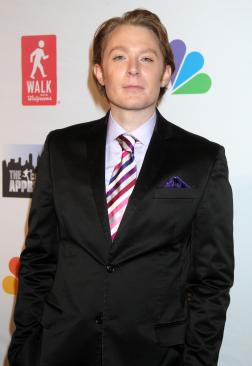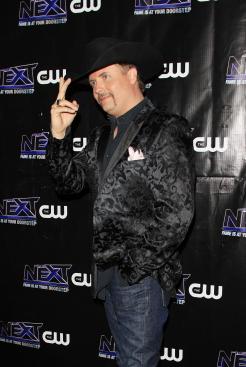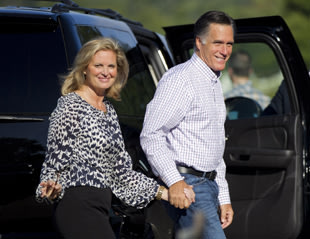President Barack Obama speaks during an interview with The Associated Press at the White House, Thursday, Aug. 23, 2012, in Washington. Obama talked about the presidential race and Republican challenger Mitt Romney in the exclusive AP interview before heading off to a long weekend with his family at Camp David, the secluded presidential retreat in the Maryland mountains. His comments come ahead of the GOP convention opening Aug. 27, 2012, in Tampa, Fla. (AP Photo/Carolyn Kaster)
President Barack Obama speaks during an interview with The Associated Press at the White House, Thursday, Aug. 23, 2012, in Washington. Obama talked about the presidential race and Republican challenger Mitt Romney in the exclusive AP interview before heading off to a long weekend with his family at Camp David, the secluded presidential retreat in the Maryland mountains. His comments come ahead of the GOP convention opening Aug. 27, 2012, in Tampa, Fla. (AP Photo/Carolyn Kaster)
President Barack Obama speaks during an interview with The Associated Press at the White House, Thursday, Aug. 23, 2012, in Washington. Obama talked about the presidential race and Republican challenger Mitt Romney in the exclusive AP interview before heading off to a long weekend with his family at Camp David, the secluded presidential retreat in the Maryland mountains. His comments come ahead of the GOP convention opening Aug. 27, 2012, in Tampa, Fla. (AP Photo/Carolyn Kaster)
Republican presidential candidate, former Massachusetts Gov. Mitt Romney speaks as vice presidential running mate Rep. Paul Ryan, R-Wis., listens during a campaign rally on Saturday, Aug. 25, 2012 in Powell, Ohio. (AP Photo/Evan Vucci)
President Barack Obama speaks during an interview with The Associated Press at the White House, Thursday, Aug. 23, 2012, in Washington. Obama talked about the presidential race and Republican challenger Mitt Romney in the exclusive AP interview before heading off to a long weekend with his family at Camp David, the secluded presidential retreat in the Maryland mountains. His comments come ahead of the GOP convention opening Aug. 27, 2012, in Tampa, Fla. (AP Photo/Carolyn Kaster)
Republican presidential candidate, former Massachusetts Gov. Mitt Romney listens as vice presidential running mate Rep. Paul Ryan, R-Wis., not pictured, speaks during a campaign rally on Saturday, Aug. 25, 2012 in Powell, Ohio. (AP Photo/Evan Vucci)
TAMPA, Fla. (AP) ? On the eve of their national party conventions, Barack Obama and Mitt Romney are locked in a close race to amass the requisite 270 Electoral College votes for victory. And the contest is exactly where it was at the start of the long, volatile summer: focused on seven states that are up for grabs.
Neither candidate has a significant advantage in Colorado, Florida, Iowa, Ohio, Nevada, New Hampshire and Virginia, which offer a combined 85 electoral votes, according to an Associated Press analysis of public and private polls, spending on television advertising and numerous interviews with Republican and Democratic strategists in battleground states.
The analysis, which also took into account the strength of a candidate's on-the-ground organization and travel schedules, found that if the election were held today, Obama would have 19 states and the District of Columbia, offering 247 votes, solidly in his column or leaning his way, while Republican Romney would have 24 states with 206 votes.
Obama won all seven of the too-close-to-call states in 2008, and they are where the race will primarily be contested in the homestretch to the Nov. 6 election.
Ten weeks before Election Day, the AP analysis isn't meant to be predictive but rather is intended to provide a snapshot of a race that's been stubbornly close all year.
Among the unknowns that could shake up the electoral landscape before November: the latest unemployment figures that come out early next month, an unexpected foreign policy crisis in Syria or Iran and the outcome of the candidates' October debates.
Both sides are working to persuade the 23 percent of registered voters who said in an Associated Press-GfK poll that they are either undecided about the presidential race or iffy in their support for a candidate.
To woo them, the campaigns and political parties, along with allied groups with access to unlimited financial contributions, have already spent an astounding $540 million on television advertising, according to ad spending reports provided to the AP. And there's more to come.
Over the past three months, the campaign took a sharply negative turn, at times becoming nasty and personal.
Obama sought to define Romney early as a ruthless corporate raider for his time at the head of a private equity firm in Boston, and as an out-of-touch rich man keeping secrets about his wealth. Romney, in turn, worked to cast Obama as a failed president on a host of fronts, primarily the economy.
Both candidates have hit road bumps: Obama saw the unemployment rate rise to 8.3 percent and gave Republicans an opening to argue that he was unfriendly to small business. Romney had a widely panned foreign trip and made a series of potentially problematic comments, most recently joking about the debunked conspiracy theory regarding Obama's citizenship.
The national party conventions, starting with Republicans here, who convene Monday and start with a full schedule on Tuesday, and ending with Democrats the following week in Charlotte, N.C., will set the parameters of the fall campaign, and could provide each side with at least a temporary surge of support in national, if not battleground state, polls.
While Obama has a clear advantage given his incumbency, Romney does have a path to victory ? though it's a steep climb.
He must win most of the seven most competitive states ? Colorado, Florida, Iowa, Ohio, Nevada, New Hampshire and Virginia ? in order to reach the magic number. For instance, he can lose Ohio's 18 electoral votes and still become president if he wins the other six and hangs onto those already in his grasp. It's difficult to see a scenario where Romney wins without a victory in Florida, which offers 29 electoral votes.
Neither side expects a dramatically different playing field this fall.
"You know the states that are in play," said Obama's campaign manager Jim Messina. "I don't think there's going to be a surprise."
Romney's political director Rich Beeson makes the same point: "I don't think you're going to see the map go crazy."
Still, once their conventions are over, both campaigns will commission polls in the hardest-fought states to determine whether to shift their strategies. The candidates and their allied outside groups will pull money and manpower from states that are moving out of reach while relocating it to others they may now think they have a shot at winning.
"We're in a holding pattern," said Charlie Black, a veteran Republican campaign strategist and informal adviser to Romney.
Perhaps not for long.
With a huge cash advantage, Romney is considering trying to put more states in play ? and creating more state-by-state paths to reach 270. He's closely watching to see whether it's worth it to compete aggressively in Wisconsin, now that native son Rep. Paul Ryan is on the ticket.
The Republican National Committee and GOP allies have been advertising in the state in hopes of making it competitive; at least one poll shows they've had some success and the race appears close. Obama, who has a formidable campaign on the ground that includes the state's active labor and minority blocs, hasn't advertised there but might be forced to do so.
Romney also is eyeing a deeper investment in Michigan, where he campaigned Friday, and Pennsylvania, where Ryan was last week. Obama carried both states in 2008, but the GOP sees promise in the economically struggling northern industrial states, especially among working-class, white voters.
The Republican may have the money to expand the map.
August financial reports show that Romney's overall fundraising apparatus ? his campaign, the RNC and a separate joint-fundraising committee ? had roughly $177 million in the bank at the end of July. The reports are the most recent public data.
And to a greater degree than Obama, Romney also has amassed an untapped stockpile of general election money that he plans to use this fall. He can begin spending it immediately upon accepting the nomination for president at the convention's close Thursday night.
Obama and his comparable committees, in turn, had only about $127 million on hand, according to the most recent report.
He also must wait until he accepts his party's nomination on Sept. 6, the close of the Democratic convention, to start spending his general election money.
Unlike Romney, Obama isn't focused on expanding the map in earnest.
He's mostly looking to hang onto as many of the states he won four years ago, with Ohio being of particular focus. In recent months, Obama's standing there has strengthened, the unemployment rate has dropped and last week General Motors announced a $200 million expansion of a northeast Ohio plant to continue building the Chevrolet Cruze there.
Beyond playing defense, Obama's team is watching to see whether the political terrain becomes more favorable to him in Missouri in the aftermath of controversial abortion and rape comments by Rep. Todd Akin, a GOP Senate candidate.
The backlash has been fierce, and polls show Democratic Sen. Claire McCaskill ? arguably the most vulnerable Senate Democrat ? having gained ground. Obama competed for Missouri four years ago but lost and hasn't run ads there this year. Romney has had a comfortable advantage there.
If they have the money to do it, both sides will engage in head-faking: spending money in places simply to force the other side to defend their home turf. For example, if Romney goes after Pennsylvania, which has voted Democratic in all recent presidential elections, Obama would likely have to spend money to defend it, limiting the amount of cash he'll have available to spend in more competitive states, like Florida or Virginia.
Associated PressSource: http://hosted2.ap.org/APDEFAULT/386c25518f464186bf7a2ac026580ce7/Article_2012-08-25-Road%20to%20270/id-bb14965726664139981ffa6933045616
mike trout ryan broyles jerel worthy alshon jeffery miami heat bulls red dawn



 http://www.intnltimesharenetwork.com/properties/view/id:2019/
http://www.intnltimesharenetwork.com/properties/view/id:2019/



 Plenty of anger bubbled up after UFC 151 was canceled. From UFC president Dana White to fans who posted on Cagewriter's Facebook page, people are angry there won't be fights in Las Vegas next weekend. Anger quickly turns into a search for blame. Who do you blame for UFC 151's demise?
Plenty of anger bubbled up after UFC 151 was canceled. From UFC president Dana White to fans who posted on Cagewriter's Facebook page, people are angry there won't be fights in Las Vegas next weekend. Anger quickly turns into a search for blame. Who do you blame for UFC 151's demise?